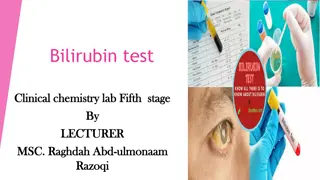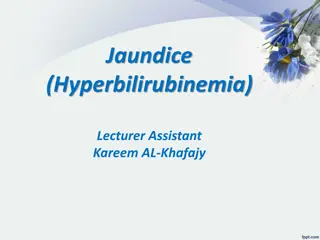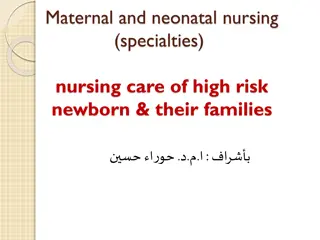Understanding Bilirubin: What You Need to Know
Bilirubin is a yellowish substance formed during the breakdown of red blood cells, traveling through the liver before excretion. High levels indicate hyperbilirubinemia, often signaling underlying health issues. It's a common occurrence in newborns as well. The compound plays a crucial role in the b
0 views • 19 slides
Understanding Hyperbilirubinemia in Infants - A Comprehensive Overview
This educational content delves into hyperbilirubinemia, focusing on its definition, causes, metabolic processes, associated complications, and treatment options like phototherapy and exchange blood transfusion. Key topics covered include physiologic jaundice, the seriousness of unconjugated bilirub
0 views • 16 slides
High-Risk Newborn Nursing Care and Factors
Maternal and neonatal nursing specialties focus on providing care for high-risk newborns and their families, who face conditions endangering the neonate's survival. Factors contributing to high-risk newborns include high-risk pregnancies, maternal medical illnesses like diabetes, labor complications
0 views • 25 slides
Newborn Care Curriculum for Late Preterm Infants in Level II NICU
This curriculum module focuses on the care of late preterm infants in Level II NICU settings, covering topics such as respiratory management, feeding difficulties, hypoglycemia, hypothermia, sepsis, hyperbilirubinemia, and discharge planning. It includes learning objectives, nursery care levels, phy
1 views • 42 slides



